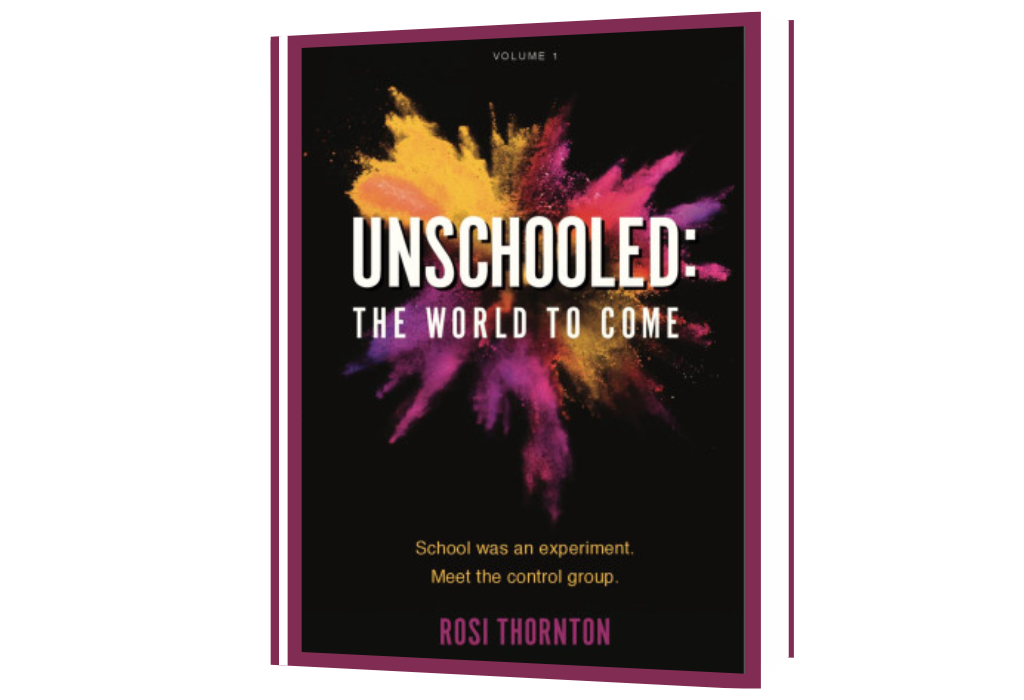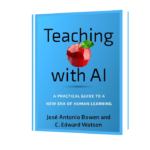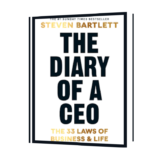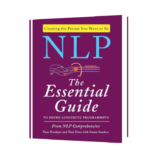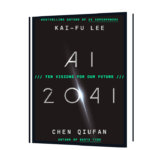Home educators are hard to categorise, covering the spectrum from Silicon Valley entrepreneurs to fundamentalist Christians. But they all share one belief: schools are failing.
History shows that school, not home education, is the fad. Schools perpetuate inequality, power-based hierarchy, and uncritical obedience. And despite all efforts to the contrary, we can still predict the success of a child on their first day of school.
But there is another way of educating, where children outperform their schooled peers by all measures; a way that lets children achieve comparably with each other despite their background. Compelling studies show that home educated students outshine school students regardless of income, race, gender or class.
This book draws upon anthropology, biology, psychology, history and technology. It examines social class, the role of women in the home, the question of socialisation, and future automation. Drawing parallels with online movements, hacker culture, indigenous peoples and our ancient ancestors, it shows how unschooling can give us back our sense of purpose, our independence, and our potential.
Unschooling rebuilds the very foundations of the way we learn, the way we live, and the future of our world.
Including:
- unschooling and democracy
- competition versus cooperation
- the question of socialisation
- unschooling and social class
- indigenous teaching methods
- land, language, and identity
- unschooling and feminism
- tech, gaming, and the online world
- the future of unschooling
This book reveals depths to unschooling you have never considered, and demonstrates a way to mend our world from the ground up. Unschooling is The World to Come.
Premise: The story is set in a future society where a catastrophic event, known as the *Education Collapse*, has led to the downfall of structured educational institutions across the globe. The event stemmed from a combination of political upheaval, technological advances, and growing dissatisfaction with the traditional school system, which many believed was stifling creativity and individuality. In response, governments initiated an experiment to raise generations without formal schooling, relying instead on the concept of “unschooling.”
Unschooling, in this context, is a system where children are allowed to learn through life experiences, self-directed exploration, and organic discovery. Initially, it appears to be a progressive and innovative idea, allowing children to chart their own educational course without the rigid boundaries of subjects and grades. The world believes this will create a generation of free thinkers, innovators, and problem solvers.
However, as the story unfolds, it becomes clear that the lack of formal guidance, structure, and social cohesion has left the new generation vulnerable. The unanticipated challenges that arise from this experiment form the crux of the book’s conflict.
Part One: The Experiment
The novel begins with a flashback to the period leading up to the *Education Collapse*, explaining the forces that pushed society toward abandoning the traditional school system. Public disillusionment with the education system had been growing for decades. Critics argued that schools were factories designed to churn out uniform, compliant citizens rather than encouraging creativity, critical thinking, and individuality. The global movement for education reform took inspiration from unschooling pioneers, who advocated for self-directed learning as a way to nurture curiosity and passion in children.
This idea gained momentum until, finally, policymakers around the world began implementing drastic reforms. Schools were shut down, teachers were reassigned to mentorship roles, and parents were encouraged to adopt a hands-off approach to their children’s education. The world was hopeful for a utopia where knowledge flowed freely and organically.
The initial chapters present this history through the eyes of a journalist, Maya, who documented the last days of formal education. Maya’s reflections serve as a narrative device to provide the reader with context, highlighting both the optimism and the underlying concerns about what unschooling would mean for future generations.
Part Two: The Control Group
The main protagonists of the novel are a group of teenagers living in one of the experimental unschooled communities, a controlled environment where the theory of unschooling is being fully tested. The group includes:
1. Ava: A naturally inquisitive girl who thrives in the unschooled environment but is beginning to realize the gaps in her knowledge and social understanding.
2. Jaden: A boy who feels lost without structure. Despite his passion for engineering, he struggles to find guidance or resources to pursue it.
3. Leo: An outspoken critic of the system, Leo is determined to reintroduce formalized education to his peers but faces opposition from both adults and other teenagers.
4. Seraphina: A mysterious and quiet girl who seems to know more than she lets on about the system and its hidden flaws.
The group forms a tight-knit community as they navigate the complexities of a world without formal education. They live in a society where traditional authority figures such as teachers and principals have been replaced by facilitators, adults who offer guidance but do not impose knowledge. Without the structured interaction of classrooms, the group learns by trial and error, exploring their interests and passions but also grappling with the limitations of unschooling.
A major theme of this part of the novel is the tension between freedom and responsibility. The protagonists enjoy the freedom to learn what they want when they want, but this freedom comes at a cost. Without a structured curriculum, they lack foundational knowledge in areas like history, mathematics, and science. Furthermore, the lack of socialization through school leaves many young people feeling isolated and disconnected from the larger society.
As the group explores the world around them, they begin to encounter the darker side of the unschooling experiment. While some children thrive in the system, others are left behind, unable to focus or motivate themselves without external pressure. The protagonists witness how this disparity creates a divide between those who are naturally curious and self-driven and those who struggle to keep up.
Part Three: The Consequences
As the protagonists grow older, the flaws in the unschooling system become more apparent. The lack of structure leads to increasing inequality as some children receive more support from their parents or access to resources, while others are left to fend for themselves. This divide is especially noticeable when it comes to access to technology, which plays a central role in the unschooled world. Some families have advanced AI tutors, while others lack basic access to the internet.
The protagonist Leo, who has always been critical of the system, decides to take action. He organizes a rebellion within the unschooled community, advocating for a return to formal education. Leo’s movement quickly gains momentum, attracting teenagers who feel that the lack of structure has hindered their personal and intellectual growth.
This section of the book explores themes of rebellion, leadership, and the challenges of reform. Leo and his group are met with resistance from both the facilitators and other teenagers who have fully embraced the unschooling philosophy. The community is divided, and the tension reaches a boiling point as arguments over the future of education threaten to tear apart the fabric of society.
Part Four: The World to Come
In the final part of the novel, the protagonists face the ultimate test of their beliefs as the outside world begins to take notice of the growing unrest in the unschooled communities. Governments, once eager to promote unschooling as a solution to the problems of the past, now find themselves grappling with the unintended consequences of their experiment.
Ava, who has always been open-minded and adaptable, struggles to reconcile her love of learning with the system’s failings. Jaden, despite his earlier frustrations, finds solace in pursuing his passion for engineering through hands-on experimentation. However, Leo’s rebellion causes a rift in the group, and Seraphina’s mysterious knowledge about the government’s true intentions adds a layer of intrigue to the plot.
The novel concludes with the protagonists facing an uncertain future. Will they return to formal schooling, or will they find a way to reform unschooling into something that works for everyone? The book leaves readers with a powerful question: Is there a perfect system of education, or is learning something that can never be fully systematized?
Themes:
1. Freedom vs. Structure: The novel explores the tension between freedom and structure in education. While unschooling offers children the freedom to pursue their interests, it also exposes the dangers of a lack of guidance and support.
2. Inequality: *Unschooled: The World to Come* highlights how access to resources can exacerbate inequalities in an unschooled world. Children from wealthier families have more opportunities to succeed, while others are left behind.
3. Socialization and Community: The novel also examines the importance of socialization in education. Without the social structure provided by schools, many children struggle to build relationships and feel connected to the larger society.
4. Rebellion and Reform: Through Leo’s rebellion, the novel addresses the question of whether systems of education can be reformed from within, or whether they must be completely dismantled and rebuilt from scratch.
Conclusion:
*Unschooled: The World to Come* by Rosi Thornton is a thought-provoking exploration of the future of education and the impact of radical reform on society. Through its complex characters and gripping narrative, the novel raises important questions about the role of structure, freedom, and equality in education. Readers are left to ponder the implications of a world where formal schooling no longer exists, and whether such a world is truly possible—or desirable.
This speculative summary could evolve with the specific details from the actual book once the content is available. If you can provide the text or sections of the book, I can adjust this summary accordingly to better match the plot and themes of *Unschooled: The World to Come*.


